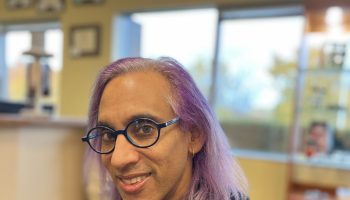According to the Appalachian Regional Commission, there are six economically distressed areas within Chautauqua County. ARC has classified it as a county transitioning between a strong and weak economy.
Within each distressed area in Appalachia, the poverty rate is at least 150 percent of the U.S. average.
United Way of Southern Chautauqua County issued two key county-wide studies in 2013: Community Status Report and Women and Girls in Chautauqua County. In the former, it concluded that Chautauqua County “is experiencing increasing poverty, unemployment and dependency.”
In the latter it found that more than half of the households living in poverty are headed by women, and women earn just 77 percent of what men earn even though more women graduate from high school and earn college and graduate degrees.
“Of New York’s 62 counties, we are the 58th worst in ‘healthy community statistics,’ ” said Jane Becker. “When you help women and girls, you help families and communities; there’s a multiplier effect.”
Becker, who has worked as an executive coach and consultant since 2002, has been doing just that. She will give a talk titled, “The ‘Coalition of Chautauqua County Women and Girls’ Reaching Out to the Community,” at 9:15 a.m. Thursday at the Chautauqua Women’s Club.
When she moved to Jamestown in 1985, Becker became executive director of the Private Industry Council of Chautauqua Inc., a position she would hold for 14 years. She said she was responsible for writing an anti-poverty plan for Chautauqua County. A self-described “data nut,” her plan was based on the 1980 census.
Because the 2010 census data was available online, Becker said she dove into the data and thought, “We are no better off than we were 30 years ago. Even with all the people working on this and all the resources spent, we’re not moving the dial. That’s sad.”
As a trustee of the Dibert Foundation, Becker said, she was able to direct a small pot of funds to a study of women and girls. She is also a former board member and former chair of the planning council of the United Way of Southern Chautauqua County, which conducted the study.
In 2014, Becker issued a call to action. She said she invited about 80 women for a half-day session to ask, “What are we, in this room, going to do with our resources?” They came up with a list of priorities.
“From then to now, everyone is stepping up with their skills and talents,” Becker said.
The coalition’s mission and vision are to build a better future for women and girls of Chautauqua County via a community that provides opportunities for them to thrive. Becker is a founding member and chair of its steering committee.
Becker said she initially thought gathering local women together to form the coalition would be her biggest challenge.
“It’s not. It’s the details of the organization. The single biggest problem with a woman in poverty is scheduling,” she said. “They’re busy with kids, school, English as a second language, college.”
The coalition’s volunteers are also busy, Becker said. Three separate projects are underway.
For two of them, the organization Bridges Out of Poverty has been brought in to train women familiar with middle class roles to serve as coaches for women who only know poverty roles.
“I’m a certified coach from Case Western Reserve University in Cleveland,” Becker said. “I went back there and said to Richard Boyatzis, ‘I’d like to give away what you taught me. He said, go do it.”
She said she has been working hard since then to package her knowledge of coaching to help all women be coaches.
“See Maria Shriver’s annual report on the status of women and girls,” Becker said. “It’s a national issue. Pick any area and do something about it. Real life presses in — you can’t ignore all that stuff — but we have to push back a little bit. We waste a lot of time in this society and I’m worried that we get too isolated.”





